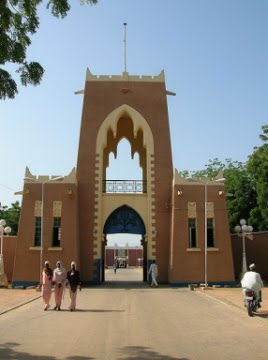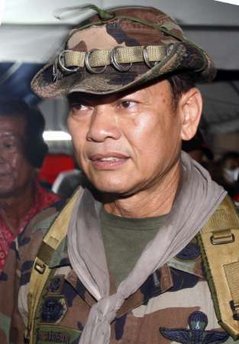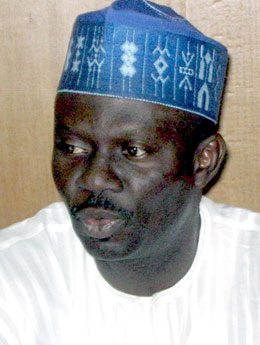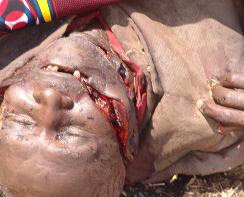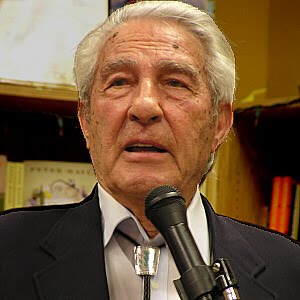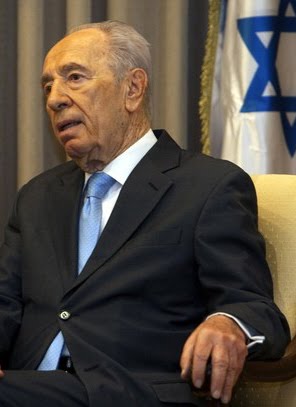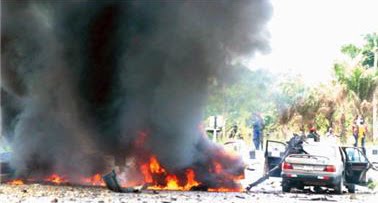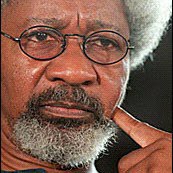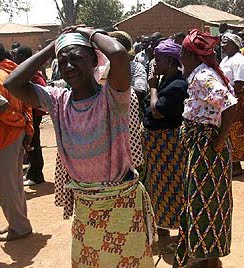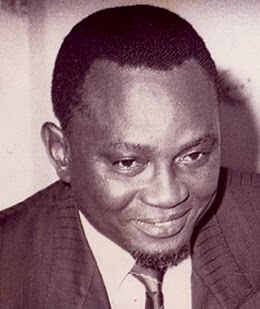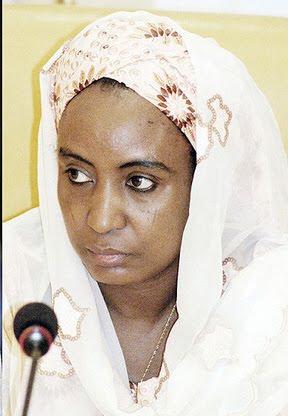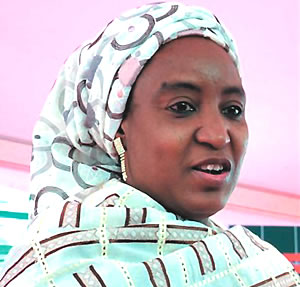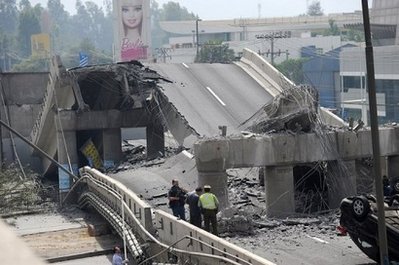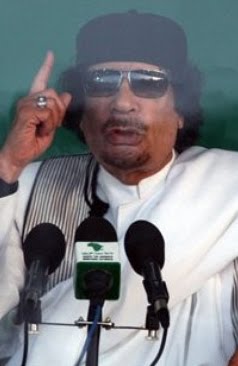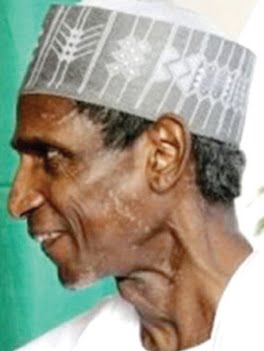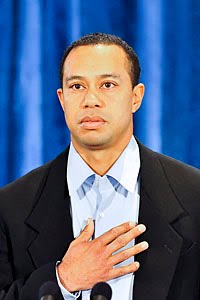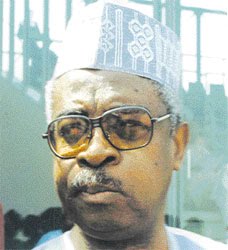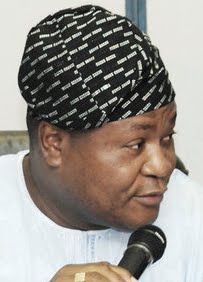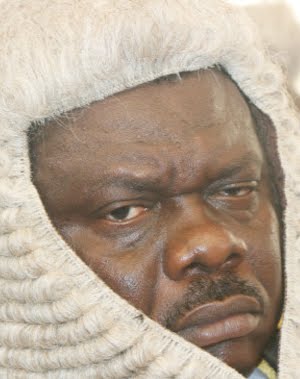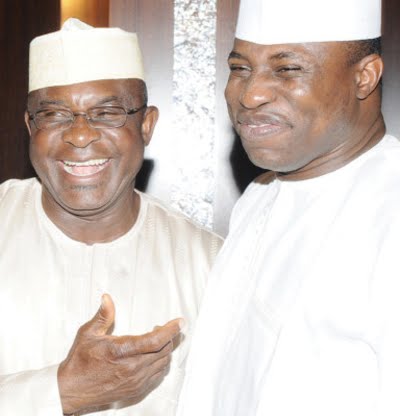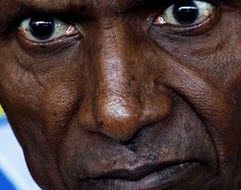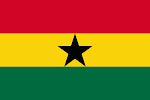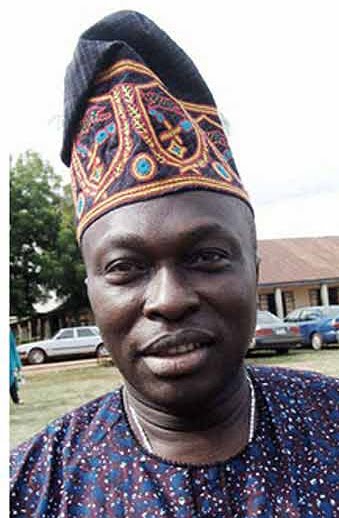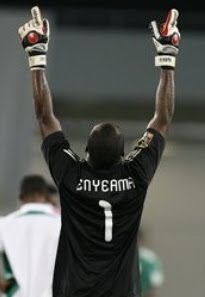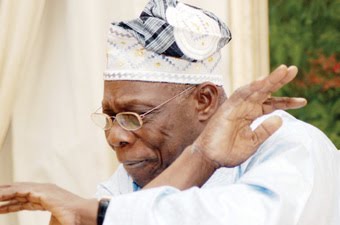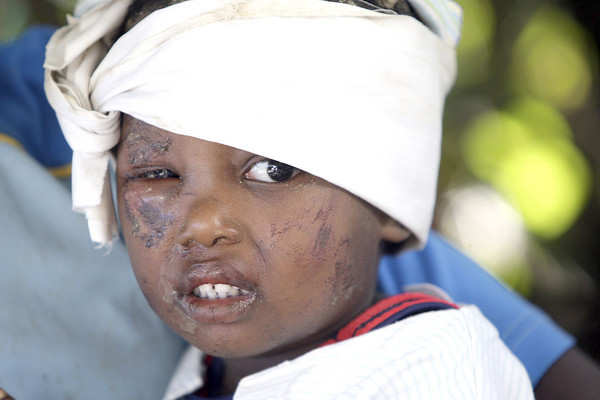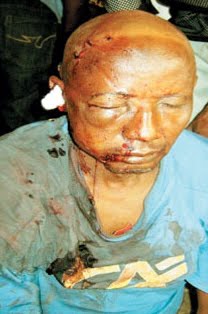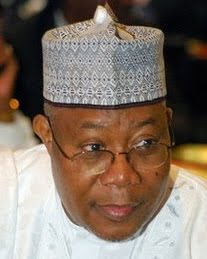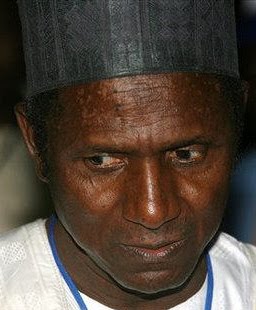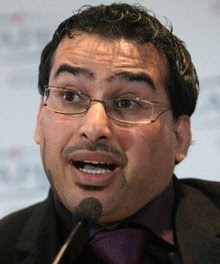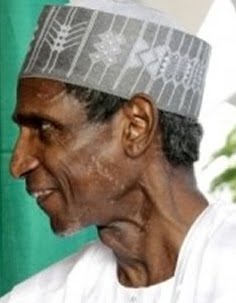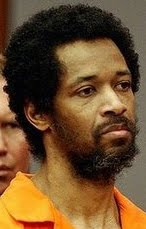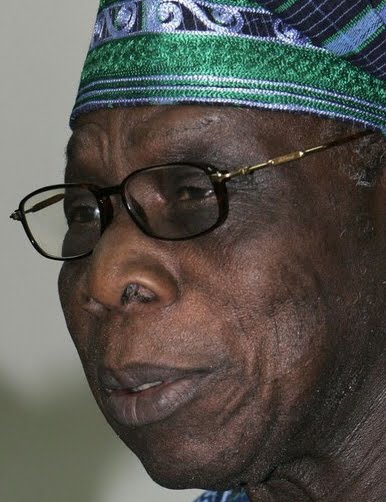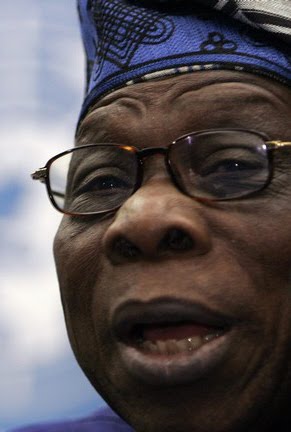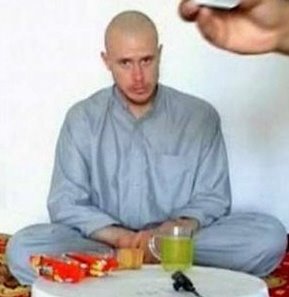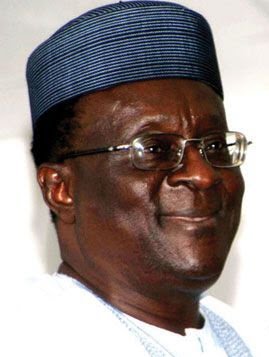
INTERNATIONAL COURT OF JUSTICE DISSENTING OPINION OF JUDGE ABDUL G. KOROMA; CASE CONCERNING THE LAND AND MARITIME BOUNDARY BETWEEN CAMEROON AND NIGERIA (CAMEROON V. NIGERIA: EQUATORIAL GUINEA INTERVENING) JUDGMENT OF OCTOBER 10th, 2002.
"Role of Court in judicial settlement of territorial and boundary disputes — Nigeria's claim to Bakassi based on original title and historical consolidation and to settlements around Lake Chad based on historical consolidation — 1884 Treaty of Protection between Great Britain and Kings and Chiefs of Old Calabar — Legal basis for solving dispute — Invalidity of Anglo-German Agreement of II March 1913 — Failure of Court to properly assess evidence establishing historical consolidation — Historical consolidation provides valid basis for territorial title.

1. Perhaps nowhere is the category of the peaceful settlement of disputes more imperative than in territorial and boundary disputes between neighbouring States, given the potential for such disputes to escalate with destructive consequences for the States concerned.
2. But this notwithstanding, with reference to the Court's role as an arm of preventive diplomacy, i.e., being seised of disputes which seem entirely political but which have a legal component, the President of the Court told the United Nations General Assembly in 1991 that the Court's mission was to declare and apply the law, and that it would range outside that task at its peril and at the peril of international law (see Sir Robert Jennings, "The Role of the International Court of Justice", British Year Book of International Law (BYBIL), 1997, p. 3). Therefore, even in performing this role the Court is bound, pursuant to its Statute, to apply relevant treaties and conventions as well as general principles of law recognized by the Parties (Statute of the Court, Art. 38). Hence, the Court cannot allow itself to abdicate this judicial responsibility.
3. I am, however, obliged to observe that the conclusion reached by the Court with respect to the 1884 Treaty between Great Britain and the Kings and Chiefs of Old Calabar regarding the Bakassi Peninsula is tantamount to a recognition of political reality rather than to an application of the treaty and the relevant legal principles. In my view, it is not the function of the Court to recognize or consecrate political reality but rather to apply the law in ruling on disputes before it. Nor can I concur with the Court's response to the claim of "historical consolidation" by Nigeria in this case, the implication being that conventional title based on the 1913 Anglo-German Agreement is the only valid means of acquiring title or that the mode of territorial acquisition is closed. If the latter were the case, there would have been no place in the Court's jurisprudence for prescriptive title, etc. In my view, the approaches taken by the Court to reach its conclusions on these two issues are both fundamentally flawed.The main purpose of applying the law is to do justice and where the law is not correctly applied it could lead to an injustice. It is principally because of my disagreement with the conclusions and findings of the Court regarding these two issues that 1 have decided to exercise the faculty to enter this dissenting opinion as provided for by the Statute.
4. In this dispute both Parties maintain that the main focus is the Bakassi Peninsula, although they expect different results. In its final submissions with respect to Bakassi, the Republic of Cameroon, inter alia, requested the Court to adjudge and declare that sovereignty over the peninsula is Cameroonian. In both its Memorial and pleadings before the Court, Cameroon relied mainly for its title on the Anglo-German Agreement of 11 March 1913 and on various effectivites.
5. The Republic of Nigeria, for its part, requested the Court to adjudge and declare that sovereignty over the Bakassi is vested in the Federal Republic of Nigeria. It based its claim to sovereignty over the peninsula on original title, as confirmed by the Treaty of Protection which the Kings and Chiefs of Old Calabar signed with Great Britain on 10 September 1884 and mainly on historical consolidation. In this regard, Nigeria contended that parts of the Anglo-German Agreement of 11 March 1913, under which Bakassi was ceded by Great Britain to Germany and subsequently inherited by Cameroon as successor State, were invalid as Great Britain was not entitled to cede the territory pursuant to the 1884 Treaty, which was a treaty of protection and in no way transferred sovereignty to Great Britain over the territories of the Kings and Chiefs of Old Calabar. Nigeria further argued that the 1913 Agreement was also invalid on grounds of inconsistency with the principle nemo dat quod non habet. In Nigeria's view, however, such invalidity only applied to those parts of the Agreement which purport to prescribe the boundary and which, if effective, would have involved a cession of territory to Germany, that is to say, essentially Articles XVIII to XXII.
6. In paragraph 209 of the Judgment, the Court reached the conclusion that under the applicable law at the time Great Britain was in a position in 1913 to determine its boundary with Germany, based on the 1913 Agreement. In paragraph 212 of the Judgment, the Court stated that it is unable to accept that until Nigeria's independence in 1961, and notwithstanding the Anglo-German Agreement of 11 March 1913, the Bakassi Peninsula had remained under the sovereignty of the Kings and Chiefs of Old Calabar. The Court went on to find that Nigeria, at the time, accepted that Articles XVIII to XXII of the Anglo-German Agreement of 1913 were valid and in effect, and that it recognized Cameroonian sovereignty over the Bakassi Peninsula (paragraph 214). Based on these findings, the Court, in its operative paragraphs, decided that the boundary between the Republic of Cameroon and the Federal Republic of Nigeria in Bakassi is delimited by Articles XVIII to XX of the Anglo-German Agreement of 11 March 1913; and that sovereignty over the Bakassi Peninsula lies with the Republic of Cameroon.
7. This conclusion, with respect, is unsustainable, both in the light of the 1884 Treaty and in the light of the material evidence which was before the Court. The findings are in clear violation of the express provisions of the 1884 Treaty and contrary to the intention of one of the parties to the 1884 Treaty — that of the Kings and Chiefs of Old Calabar — and hence to the rule of pacta sunt servanda, i.e., the sanctity of treaties. This finding, in violation of the applicable treaty and clearly in breach of the principle of pacta sunt servanda, is not only illegal but unjust.
8. Moreover, I am also unable to accept that the categories of legal title to territory are restricted to what the Court described as the "established" modes, in its response to the contention that the principle of historical consolidation was a valid basis for territorial title, that is to say that proven long use, coupled with a complex of interests and relations, as in the present case, can have the effect of attaching a territory to a given State. In my opinion, founded on the jurisprudence of the Court (Fisheries (United Kingdom v. Norway), Judgment, I.C.J. Reports 1951, p. 139; Minquiers and Ecrehos (United Kingdom/France), Judgment, I.C.J. Reports 1953, p. 57; Land, Island and Maritime Frontier Dispute (El Salvador!Honduras: Nicaragua intervening). Judgment, I.C.J. Reports; 1992, p. 565, para. 345), historical consolidation, if supported by the requisite evidence, can be a sound and valid means of establishing territorial title in international law. When, therefore, such evidence is presented to the Court, as in this case, it does not seem legally justified to reject such evidence because it is categorized under a particular rubric. Rather than being preoccupied with the "label" of the evidence, the Court's essential judicial function should be to assess and interpret the evidence before it objectively, so as to determine whether or not such evidence is sufficient to establish title to the territory in question.
9. As stated earlier, Nigeria's claim to Bakassi is, on the basis of original title, vested in the Kings and Chiefs of Old Calabar, the geographical extent of which covered south-eastern Nigeria and which in the 1700s was peopled mainly by the Efiks and the Efiat. Historically, the territorial authority of the Kings and Chiefs of Old Calabar is said to have extended as far east as the Rio del Rey. Nigeria pointed out that the limits of the territorial authority of the Kings and Chiefs of Old Calabar are conveniently represented by two inland waterways known as the Archibong Creek and Ikankau Creek; that the area known as Old Calabar was the centre of Efik activity and authority and included towns such as Duke Town, Creek Town, Henshaw Town and Obutong Town; that other Efik towns further afield included Tom Shott's Town and Arsibon's (now Archibong); that each of these towns, or virtually city States, had its own King or Chief from whom, by the early nineteenth century, the paramount chieftaincy or kingship — later the Obongship — of Old Calabar evolved; that in the nineteenth century Old Calabar and its Efik Houses had established their authority not only over the area around Old Calabar, but also over all the lands between Cross River and the Rio del Rey. Furthermore, through economic, social and cultural links, the Kings and Chiefs of Old Calabar exercised control over their citizens. In particular, through the Ekpe shrine, the Kings and Chiefs ensured the effective administration of justice, the maintenance of peace and security and the development of the resources within their territory. The material evidence before the Court thus showed that the activities of Old Calabar included the founding of settlements of increasing permanence in the Bakassi Peninsula which were within the dominions of Old Calabar.
10. The Court was also furnished with evidence that the British Consul Hewett, who negotiated the 1884 Treaty of Protection between Great Britain and the Kings and Chiefs of Old Calabar, described Old Calabar in the following terms: "This country with its dependencies extends from Tom Shots ... to the River Rumby (on the west of Cameroon Mountains), both inclusive" (Counter-Memorial of Nigeria, Vol. I, p. 95). "The Chiefs of Tom Shot country, of Efut ... the country about the River Rumby, made declarations that they were subject to Old Calabar" (CR 2002/8, p. 45, para. 31), an important and significant statement emanating from an official who had direct and first-hand knowledge of the area and evidencing and confirming the extent of Old Calabar. Later evidence of this was provided in 1890 by another British Consul, Johnston, who stated that "the rule of the Old Calabar Chiefs extended far beyond the Akpayafe River to the very base of the Cameroons" (Counter-Memorial of Nigeria, Vol. I, p. 95), and qualified this by adding that the "Efik people . . . only went as Far East as the right bank of the Ndian River" (ibid.). According to Johnston, who had travelled the region extensively:"(t]he trade and rule of the Old Calabar Chiefs extended, in 1887, considerably further to the east than the Ndian RiverThe left or eastern bank of the Akpayafe and the land between that river and the Ndian is under the rule of Asibon or Archibong Edem III, a big Chief of Old Calabar." (Ibid.)
11. On the basis of this evidence, Nigeria maintained that Bakassi and the Rio del Rey are demonstrably to the west of the Ndian River, and Bakassi was part of Old Calabar's outlands. Nigeria maintained that the I884 Treaty between the Kings and Chiefs of Old Calabar and Great Britain extended over this territory and was a treaty of protection and not one in which the territory was ceded to Great Britain. In the light of the foregoing, Nigeria complained that parts of the Agreement of 1913 which Great Britain concluded with Germany were inconsistent with the 1884 Treaty of Protection and therefore invalid. In Nigeria's view, the offending Articles were the following:"XVIII. Thence it follows the thalweg of the Akpakorum (Akwayafe) River, dividing the Mangrove Islands near Ikang in the way shown on the aforesaid map T.S.G.S. 2240, sheet 2. It then follows the thalweg of the Akwayafe as far as a straight line joining Bakasi Point and King Point.XIX. Should the thalweg of the Lower Akwayafe, upstream from the line Bakasi Point-King Point, change its position in such a way as to affect the relative positions of the thalweg and the Mangrove Islands, a new adjustment of the boundary shall be made, on the basis of the new positions, as determined by a map to be made for the purpose.XX. Should the lower course of the Akwayafe so change its mouth as to transfer it to the Rio del Rey, it is agreed that the area now known as the Bakasi Peninsula shall still remain German territory. The same condition applies to any portion of territory now agreed to as being British, which may be cut off in a similar way.XXI. From the centre of the navigable channel on a line joining Bakasi Point and King Point, the boundary shall follow the centre of the navigable channel of the Akwayafe River as far as the 3-mile limit of territorial jurisdiction. For the purpose of defining this boundary, the navigable channel of the Akwayafe River shall be considered to lie wholly to the east of the navigable channel of the Cross and Calabar Rivers.XXII. The 3-mile limit shall, as regards the mouth of the estuary, be taken as a line 3 nautical miles seaward of a line joining Sandy Point and Tom Shot Point."Nigeria claims that the effect of this Agreement was that Great Britain passed title to Bakassi to Cameroon, which it was not entitled to do.
12. Cameroon, on the other hand, contended that it would be inappropriate to talk of Old Calabar as if it possessed international personality or as if it was recognized as a State during that period with defined territorial limits which Nigeria could have inherited.
13. The Court, in paragraph 207 of its Judgment, held that the 1884 Treaty signed with the Kings and Chiefs of Old Calabar did not establish an international protectorate and it went on to say that from the outset Britain regarded itself as administering the territories comprised in the 1884 Treaty, and not just protecting them, and that the fact that a delegation was sent to London by the Kings and Chiefs of Old Calabar in 1913 to discuss matters of land tenure cannot be considered as implying international personality and simply confirmed the British administration by indirect rule. According to the Judgment, the Court held that Nigeriaitself had not been able to say with clarity and certainty what happened to the international personality of the Kings and Chiefs of Old Calabar after 1885. This implies that the 1884 Treaty did not mean what was stated in it and Great Britain was entitled to alienate the territory covered by the Treaty of Protection despite the express provisions of that Treaty.
14. With respect, the reasoning given in support of the finding amounts to a serious distraction from the legal issues at hand. The duty of the Court, in my view, would have been to undertake a proper examination of the Treaty with a view to establishing its intention and meaning. The 1884 Treaty provides as follows:"Article 1. Her Majesty the Queen of Great Britain and Ireland, &c, in compliance with the request of the Kings, Chiefs, and people of Old Calabar, hereby undertakes to extend to them, and to the territory under their authority and jurisdiction, her gracious favour and protection.Article 2. The Kings and Chiefs of Old Calabar agree and promise to refrain from entering into any correspondence, Agreement, or Treaty with any foreign nation or Power, except with the knowledge and sanction of Her Britannic Majesty's Government," (Counter-Memorial of Nigeria, Vol. I, p. 109; emphasis added.)
15. The Treaty is thus unambiguously clear. Great Britain undertook to extend "her gracious favour and protection" to the Kings, Chiefs and people of Old Calabar. According to jurisprudence, a treaty whose terms and provisions are clear does not need to be interpreted. Nor may interpretation be used as a pretext to deny the clear meaning of a legal instrument. However, if the Court chooses to interpret the treaty it has to be interpreted in accordance with the applicable international rules at the time the treaty was concluded. Since the purpose of interpreting a treaty is to ascertain the intention of the parties to the treaty, there is, therefore, no reason to interpret the 1884 Treaty otherwise than in accordance with the international rules which operated at that time and which included the principle of pacta sunt servanda (the sanctity of treaties). Thus, if the Court had interpreted the 1884 Treaty, even in the light of the then existing canons of interpretation, the legal meaning that would have emerged is that the Queen of Great Britain and Ireland undertook to extend to the territory under the authority and jurisdiction of the Kings and Chiefs of Old Calabar "her gracious favour and protection". The creation of the protectorate by the 1884 Treaty did not involve any cession or transfer of territory. On the contrary, the protecting Power — Great Britain — was only to protect the citizens of Old Calabar and not to dispossess them of their territory. Nor did the Treaty confer rights of sovereignty on Great Britain. On the contrary, it conferred a duty of protection and not for the benefit of a third party. Accordingly, since the Treaty was validly concluded and this has not been demurred, and Great Britain even raised it against other European States whenever their interests were in conflict in the region, Great Britain thus recognized the sovereignty of the Kings and Chiefs and people of Old Calabar over their territory and this cannot subsequently be denied. The 1884 Treaty thus constitutes evidence of an acknowledgment by Great Britain that the Kings and Chiefs of Old Calabar were capable of entering into a treaty relationship with a foreign Power and that they were recognized as capable of acting at an international level. Therefore, to argue that the 1884 Treaty did not mean what it said would not only be inconsistent with the express provisions of the Treaty itself, but would also be contrary to the rule of pacta sunt servanda (the sanctity of treaties), a rule which forms an integral part of international law and is as old as international law itself. In other words, it is impossible for a State to be released by its own unilateral decision from its obligations under a treaty which it has signed, whatever the relevant method or period. Thus, given that the 1884 Treaty was a treaty of protection and not one of cession involving the alienation of territory, it follows that Great Britain's authority in relation to the Kings and Chiefs of Old Calabar did not include the power to conclude on their behalf treaties which entitled the protecting State to alienate the territory of the protected State; therefore, the relevant parts of the 1913 Anglo-German Agreement, by which Great Britain purportedly ceded the territory of the Kings and Chiefs of Old Calabar to Germany, lay outside the treaty-making competence of Great Britain, and were not binding on the Kings and Chiefs of Old Calabar nor ultimately on Nigeria as the successor State. There is, therefore, no legal basis on which to hold, as the Court has done in this case, that the protector State was entitled to cede territory without the consent and in breach of the protective agreement, by stating that "from the outset Britain regarded itself as administering the territories comprised in the 1884 Treaty, and not just protecting them" (para. 207) or that under the law prevalent at the time (in 1913) Great Britain was entitled "to determine its boundaries" (para. 209), even when this affected the territory of a protected State without its consent and inconsistent with the provisions of the relevant Treaty. These conclusions are totally at variance with the express provisions of the 1884 Treaty and in violation of the principle of pacta sunt servanda. Moreover, by concluding the 1884 Treaty, it is clear that the territory of Old Calabar was not regarded as a terra nullius but a politically and socially organized community which was recognized as such and which entered into a treaty relationship with Great Britain, a treaty Great Britain felt able to raise against other European States.
16. The foregoing is the correct conclusion which the Court would have reached had it taken the proper approach of interpreting the Treaty with respect to the territory of Old Calabar. Such examination would have shown that the Treaty precluded Great Britain from ceding the territory in question. It would also have revealed that Britain was not entitled to cede Bakassi under the terms of the Treaty. Such a finding would have been founded in law. It is common knowledge that territorial titles were acquired by European States in Africa by treaties of cession, but in the case of a protectorate treaty the sovereignty which inhered in the local ruler would be split in such a way that the protector State would exercise rights of external sovereignty in favour of the protected entity whilst the internal sovereignty would continue to be exercised by the local kings and rulers. In this regard, some African protectorate treaties, such as the 1884 Treaty with the Kings and Chiefs of Old Calabar, were expressed in negative clauses, which imposed restrictions on the contracting rulers as far as exercising their external sovereignty is concerned. Under such a treaty, the Kings and Chiefs undertook not to enter into treaties with other Powers, not to maintain relations (including diplomatic intercourse), not to go to war with such Powers, and, most importantly, not to cede territory. Thus, the clause prohibiting transfer of territory to "other" European Powers was considered the most important within the framework of the protectorate. In the case of the 1884 Treaty between the Kings and Chiefs of Old Calabar and Great Britain, Great Britain was not authorized in the international relations of the Kings and Chiefs of Old Calabar, or otherwise, to act in their name and on their behalf, nor did the Kings and Chiefs give up their right and power to make treaties and agreements with foreign States, but agreed that they would do so only after having first informed the British Government and having obtained its approval.
17. In my view, the position with regard to protectorates is correctly stated in the latest edition of Oppenheim. According to the author:"An arrangement may be entered into whereby one state, while retaining to some extent its separate identity as a state, is subject to a kind of guardianship by another state. The circumstances in which this occurs and the consequences which result vary from case to case, and depend upon the particular provisions of the arrangement between the two states concerned.Protectorate is, however, a conception which lacks exact legal precision, as its real meaning depends very much upon the special case . . .The position within the international community of a state under protection is defined by the treaty of protection which enumerates the reciprocal rights and duties of the protecting and the protected states. Each case must therefore be treated according to its own merits . . . But it is characteristic of a protectorate that the protected state always has, and retains, for some purposes, a position of its own as an international person and a subject of international law." (Opprnhfim's International Law, Sir Robert Jennings and Sir Arthur Watts (eds.), 9th ed., Vol. I, pp. 267-269; emphasis added.)
18. It was against this background and on this basis that the Court should have looked at the 1884 Treaty, a treaty of protection which specifies the terms of protection and the rights and obligations, which did not include authority to alienate territory. Bakassi was part of the territorial scope of the 1884 Treaty of Protection and could not have been changed without the consent of the Kings and Chiefs of Old Calabar. Thus, to the extent that evidence of such consent was not provided, there was no basis even under the applicable law at that time for Great Britain to be able to determine its boundaries with Germany in respect of Bakassi, and to the extent that such determination was detrimental to the interests of Old Calabar it should have been declared invalid by the Court. The Judgment did not make it clear what the Court had in mind by saying that Great Britain was in a position to determine its boundary in 1913, because the primary question is whether Great Britain was entitled to alienate the territory which included Bakassi in 1913. And since the answer to this question has to be in the negative, the 1913 Anglo-German Agreement could not and cannot be regarded as valid.
19. It follows from the above that I cannot agree with the Court's findings that the maritime boundary between Cameroon and Nigeria lies to the west of the Bakassi Peninsula and not to the east in the Rio del Rey. Nor can I accept that the maritime boundary between the Parties is "anchored" to the mainland at the intersection of the straight line from Bakassi Point to King Point with the centre of the navigable channel of the Akwayafe River in accordance with Articles XVIII and XXI of the 1913 Anglo-German Agreement. The Court reached these findings on the basis of the 1913 Agreement which, as I have already demonstrated, is invalid as far as those of its provisions relating to Bakassi are concerned. This invalidity alone should have prevented the Court from reaching the aforementioned conclusions (ex una causa, nullitas) or (ex injuria non oritus jus).
Historical consolidation
20. Another aspect of the Judgment which has given me much cause for legal concern is the Court's refusal to assess Nigeria's evidence relating to historical consolidation, which was one of the main grounds of it's claim to territorial title to Bakassi and with respect to some villages which had grown up around Lake Chad, and the Court's treatment with regard to the concept itself. Nigeria claimed that historical consolidation, which is founded upon proven long use, coupled with a complex of interests and relations which, in themselves, have the effect of attaching a territory, constitutes a legal basis of territorial title.
21. With reference to the established villages around Lake Chad, Nigeria cited various elements of local government administration in support of its claim of historical consolidation and effectivites including: legal jurisdiction, taxation, authority of traditional rulers and the fact that the settlements were populated by Nigerian nationals.
22. With reference to the Anglo-German Agreement of 1913 and despite its invalidity in relation to the 1884 Treaty between Great Britain and the Kings and Chiefs of Old Calabar, Nigeria argues that the weight of evidence suggests that there was no German occupation or administration of Bakassi, and no significant pattern of German activities there, in the period between March 1913 and May 1916. It pointed out that the realities of administrative development in the peninsula between 1913 and 1916 showed that Bakassi continued to be administered as part of Nigeria and that the administration and governance of the area came virtually exclusively from Nigeria. Nigeria also stated that, as far as local government was concerned, the British in 1922 introduced a system of indirect rule, using "Warrant Chiefs", and that in 1933 the system of indirect rule was superseded by a native authority system introduced by the Native Authorities Ordinance of 1933. Nigeria explained out that in 1950 this overburdened system of local government was rationalized by the Eastern Region Local Government Ordinance No. 60 of 1950, leading in 1955 to the three-tier system of local government which was later replaced by a two-tier system under the eastern regional local government law.
23. As far as legal jurisdiction was concerned, Nigeria pointed out that native courts were established in the first years of British rule under their system of indirect rule and that the Native Authorities Ordinance of 1933 introduced new native courts organized along similar lines to the local native councils. The Court was also informed that the people of the Bakassi region were paying taxes to the Calabar and Eket authorities, and that these divisions within Nigeria were collecting the taxes. Further evidence was that a Methodist school was established at Abana on Bakassi in 1937 and that a census was conducted in the area under the auspices of the Eket Division in 1953. Ties with the traditional authorities of Old Calabar continued uninterrupted and public order was maintained with the investigation of crime. There was also evidence of the exercising of ecclesiastical jurisdiction as well as the delimitation of electoral wards and the citizens participated in parliamentary elections and were enumerated in the census. Public works and development administration were carried out as well as the exercising of military jurisdiction. Thus a considerable amount and volume of evidence was presented to substantiate the claim of historical consolidation including education, public health, the granting of oil exploration permits and production agreements, the collection of taxes, the collection of custom duties, the use of Nigerian passports by residents of the Bakassi Peninsula, the regulation of emigration in Bakassi, and that the territory itself had been the subject of internal Nigerian State rivalry.
24. Nigeria maintained that there was acquiescence to all these activities, some of which had been carried out over a long period. It contended that acquiescence in this respect had a threefold role: (1) as a significant element in the process of historical consolidation of title; (2) that it confirms a title on the basis of peaceful possession of the territory concerned; (3) that it may be characterized as the main component of title. Nigeria submitted that the Government of Cameroon acquiesced in the long-established Nigerian administration of the Bakassi region and to most of the aforementioned activities until 1972 onwards when there were various Cameroonian initiatives, and in particular the project of renaming villages, which clearly demonstrates the previous absence of Cameroonian administration. Nigeria submits that at no stage did Cameroon exercise peaceful possession of the peninsula and that from the time of independence in 1960 until 1972, the Government of Cameroon failed to challenge the legitimate Nigerian presence in the region.
25. Responding to the claim of title based on historical consolidation, the Court, in paragraph 65 of the Judgment, stated that apart from in the Fisheries (United Kingdom v. Norway) case "[this] notion . . . has never been used as a basis of title in other territorial disputes, whether in its own or in other case law" — and that nothing in the Fisheries Judgment suggested that the "historical consolidation" referred to allowed land occupation to prevail over an established treaty title. The Court also stated that "the established modes of acquisition of title . . . take into account many other important variables of fact and law" (ibid.), which are not taken into consideration by the "over-generalized" concept of "historical consolidation".
26. In my view, the categories of legal title to territory cannot be regarded as finite. The jurisprudence of the Court has never spoken of "modes of acquisition", which is a creation of doctrine. Just as the Court has recognized prescriptive rights to territory, so there is a basis for historical consolidation as a means of establishing a territorial claim. Nor can the concept of historical consolidation as a mode of territorial title be regarded as "over-generalized" and alien to jurisprudence. Both municipal and international law including the Court's jurisprudence, recognize a situation of continuous and peaceful display of authority — proven usage — combined with a complex of interests in and relations to a territory, which, when generally known and accepted, expressly or tacitly, could constitute title based on historical consolidation. The "important variables" of the so-called established modes of acquisition, which the Court did not define, are not absent in historical consolidation. If anything, they are even more prevalent — the complex of interests and relations being continuous and extending over many years plus acquiescence. Historical consolidation also caters for a situation where there has been a clear loss or absence of title through abandonment or inactivity on the one side, and an effective exercise of jurisdiction and control, continuously maintained, on the other (see Fitzmaurice, "General Principles of International Law", Recueil des cours de I'Academie de droit international de La Haye, 1957, p. 148).
27. Failure of a State to react to a claim may, under certain conditions, not amount to acquiescence, though in most cases it will. In the Minquiers and Ecrehos case, France pleaded that it was impossible to keep under surveillance the activities of the United Kingdom with respect to the islets. Responding to this argument, Judge Carneiro replied that France was obliged to keep the disputed territory under surveillance and failure to exercise such surveillance and ignorance of what was going on on the islets indicate that France was not exercising sovereignty in the area (Judgment, I.C.J. Reports 1953, p. 106). In the Anglo-Norwegian Fisheries case, the Court held that Great Britain, being a maritime Power traditionally concerned with the law of the sea, with an interest in the fisheries of the North Sea could not have been ignorant of Norwegian practice and could not rely on an absence of protest, relevant in proving historic title (Judgment, I.C.J. Reports 1951, p. 139). Thus a passive course of conduct involving failure to protest may be taken into account in determining acquiescence in a territorial dispute. If the circumstances are such that some reaction within a reasonable period is called for on the part of a State, the latter, if it fails to react, must be said to have acquiesced. "Qui tacet consenlire videtur si loqui debuisset ac potuisset."
28. Regarding the length of time required to prove title on the basis of historical consolidation, every material situation calls for its own solution, based on the balancing of competing claims and depending on the area. Title may be proved even without reference to the period of time during which sovereignty had coalesced over the territory in dispute. In paragraph 65 of the Judgment, the Court stated that "the facts and circumstances put forward by Nigeria . . . concern a period of some 20 years, which is in any event far too short, even according to the theory relied on by it". While proven long usage is an important element to consolidate title on a historical basis, however, and depending on the area, that period may sometimes be shorter. What is required is an assessment of all the elements to determine whether the facts presented establish the claim.
29. With reference to the matter at hand, the evidence of original title on which Nigeria bases its claim to Bakassi can be found in the administration of Bakassi on the part of the Kings and Chiefs of Old Calabar before and after the conclusion of the 1884 Treaty with Great Britain, the exercising of authority by traditional rulers, the Efik and Efiat toponymy of the territory, its ethnic affiliation with Nigeria but not with Cameroon, the long-established settlement of Nigerians in the territory and the manifestation of sovereign acts, such as tax collection, census-taking, the provision of education and public health services. The acquiescence of Cameroon in this long-established Nigerian administration of the territory, the permanent population, the significant affiliations of a Nigerian character, do substantiate a claim based on historical consolidation and which in turn militates in favour of territorial title and stability. The claim to territorial title to Bakassi and to the Nigerian settlements around Lade Chad was thus adequately substantiated and there is no legal justification to cast doubt on its legal basis and integrity.
30. Since the basis of the Court's finding on Bakassi has relied mainly on its evaluation of the Anglo-German Agreement of 1913, I cannot help but point out that even in the Court's jurisprudence, conventional title is only one way of establishing title to territory. The Chamber of the Court in the Frontier Dispute (Burkina Faso/Republic of Mali) case makes the following observation:
"The Chamber also feels obliged to dispel a misunderstanding which might arise from this distinction between 'delimitation disputes' and 'disputes as to attribution of territory'. One of the effects of this distinction is to contrast 'legal titles' and 'effectivites'. In this context, the term 'legal title' appears to denote documentary evidence alone. It is hardly necessary to recall that this is not the only accepted meaning of the word 'title'. Indeed, the Parties have used this word in different senses. In fact, the concept of title may also, and more generally, comprehend both any evidence which may establish the existence of a right, and the actual source of that right. The Chamber will rule at the appropriate juncture on the relevance of the evidence produced by the Parties for the purpose of establishing their respective rights in this case. It will now turn to the question of the rules applicable to the case; in so doing, it will, inter alia, ascertain the source of the rights claimed by the Parties." (Judgment, I.C.J. Reports 1986, p. 564, para. 18; emphasis added). This position was further confirmed by another Chamber of the Court in 1992 in the case concerning the Land, Island and Maritime Frontier Dispute (El Salvador/Honduras: Nicaragua intervening):"The term 'title' has in fact been used at times in these proceedings in such a way as to leave unclear which of several possible meanings is to be attached to it; some basic distinctions may therefore perhaps be usefully stated. As the Chamber in the Frontier Dispute case observed, the word 'title' is generally not limited to documentary evidence alone, but comprehends 'both any evidence which may establish the existence of a right, and the actual source of that right' (I.C.J. Reports 1986, p. 564, para. 18)." (Judgment, I.C.J. Reports 1992, p. 388, para. 45.)Notwithstanding the foregoing, it is regrettable for the Court to have made the 1913 Anglo-German Agreement the main basis of its finding, since this Agreement, in my view, was patently unjust.
31. To sum up my position, by denying the legal validity of the ISM Treaty whilst at the same time declaring valid the Anglo-German Agreement of 1913, the Court decided to recognize a political reality over the express provisions of the 1884 Treaty. The justification for this choice does not appear legal to me. It would not be justified for the Court, given its mission, if it were to be regarded as having consecrated an act which is evidently anti-legal. I regret this situation and it explains my position in this matter.
(Signed) Abdul G. Koroma

































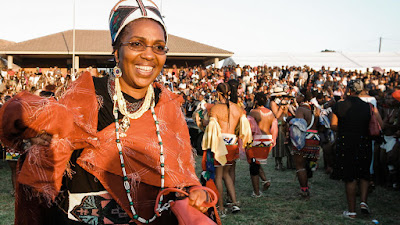


















































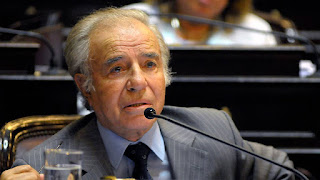

































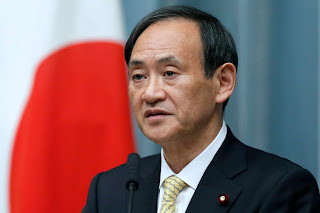


































































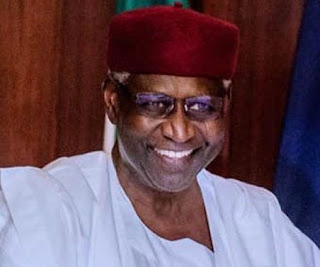



















































































































































































































































































































































































































































































































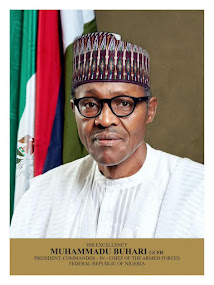




























































































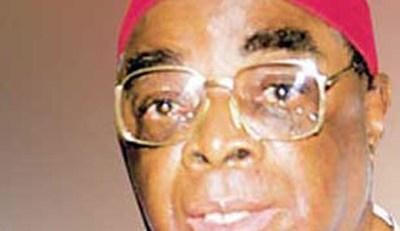



























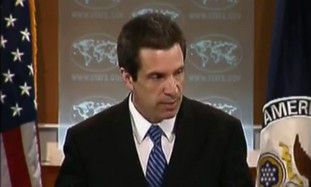
















































































.jpg)














































